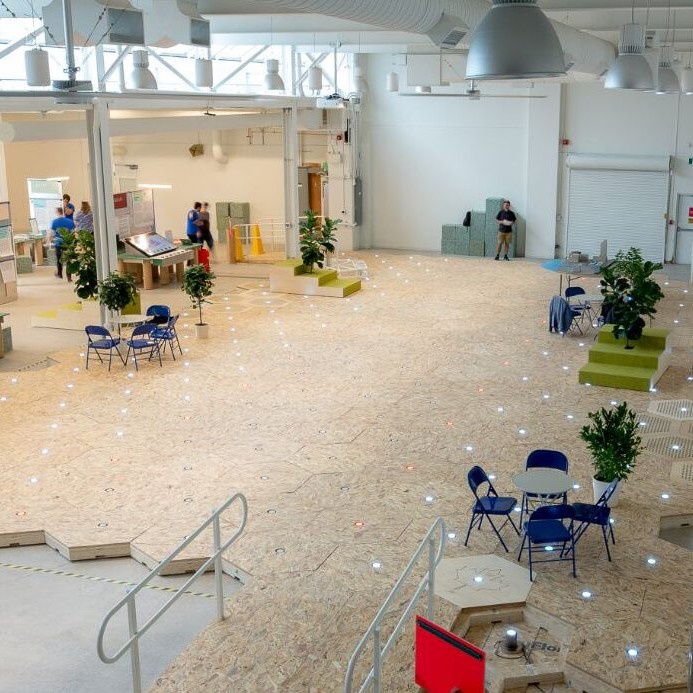-
your country
Have a specific need related to mobility?
Check out the Mobilize website that shows the offers in your country. -
explore Mobilize
Mobility seen as a set of services whose design starts with the vehicle, based on a technological platform! Find out about the mission and solutions of a new kind of brand.
read more -
mobility services
Whether you’re an individual, entrepreneur or professional in the transportation of people or goods, we develop customized services. You’ll find a solution perfectly suited to your needs.
read more -
battery recycling
What if an electric vehicle battery had multiple lives? Find out about all our initiatives for reusing batteries after their automotive life, thus helping to preserve resources and accelerate the energy transition.
read more -
#wearemobilizers
Our news, events, as well as articles, videos, infographics and podcasts decipher the major trends in mobility. Dive into a wide selection of content.
welcome aboard
In France, according to the “Mobility and Lifestyles in 2020” survey carried out by the Forum Vies Mobiles, three out of four persons declare that they are constrained in their travel. This inequality can have terrible social consequences on a daily basis. And for good reason: 1 in 4 French people have already given up a job because of travel difficulties. But the players in the sector are redoubling their efforts to devise models that are accessible to all and – why not! – return to the initial promise of mobility: to move around freely.What’s at stake: a reduction of the societal consequences such inequalities can create, the removal of constraints across the country, and potential access to new markets.
REBOOT 1: the redesign of territorial transport
“The first, most urgent question is that of social and territorial divides, and ultimately that of the equity of France’s mobility offer,” says Valérie Dreyfuss, managing director of France’s Laboratoire de la Mobilité Inclusive (Inclusive Mobility Lab). Social fractures, at the heart of public space, highlight the role of local councils, and the question of how to best accompany them in the creation of new, more inclusive services. But making the transport offer more equitable often requires a redesign of infrastructure. One example is French transport operator Transdev, who’s working to offer those who are handicapped more solutions for getting around. These include redesigning stations and vehicle access ramps, building trams and buses with lower platforms, and improving signage as well as visual, audio, and tactile forms of communication.
REBOOT 2: assistance at the heart of the future of mobility
Is ‘travel companion’ set to become a bonafide future profession? If mobility is to move towards greater inclusivity, all signs point to handicap-oriented journey assistance becoming a crucial service across the country. An online platform called Mon Copilote (My Co-Pilot) is already leading the charge. They provide travel assistance to those with reduced mobility, whether for work, leisure, or for completing day-to-day tasks. The platform lets pilots and their co-pilots choose their mode of transport: car, train, plane, bus, metro, or even walking, and find someone to travel alongside them. Another startup founded by Charlotte de Vilmorin, Wheeliz, defines itself as ‘the Airbnb of accessible vehicles’ and lets individuals rent out handicap-accessible vehicles to those who need them.

REBOOT 3: the autonomous car as a car for disabled person?
With all the focus on their potential speed and reliability, it’s easy to forget that self-driving cars also have much to offer by way of inclusivity. Shelley Lin, professor in the Department of Electrical and Computer Engineering at Northeastern University in the US is trying to revolutionise transport for the blind and visually-impaired using AI. It’s quite the challenge, requiring the system to analyse data in real time, and understand passenger behaviour and movement in order to provide the car with reliable instructions. In short, you’ll need to have two-way communication between the vehicle and its passengers, which can ultimately benefit everyone: “In an autonomous vehicle, sighted people are going to be highly distracted,” says Nicholas Giudice, a professor of spatial informatics at the University of Maine. “They aren’t going to be aware of their environment, much like a blind person will be, so in that instance, the types of things that we’re talking about could support them as well, which is a huge amount of people.”
The mobility of the future will have to account for questions of gender, handicap, age, and even the differences within regions, including their economic realities. Could the pandemic help speed up mobility’s transition to greater inclusivity? That’s certainly what the World Economic Forum is hoping for, which evokes the notion of universal mobility and relies on innovation, cooperation, and partnerships between the public and private sector to make future transport a reality for all, no exceptions.
Vincent Thobel, L’ADN journalist
L’ADN is the media on innovation that every day analyses the best concepts of the new economy on the web and in magazine format.
Copyrights: Unsplash – Joshua Hoehne, Unsplash – Robert Ruggiero


